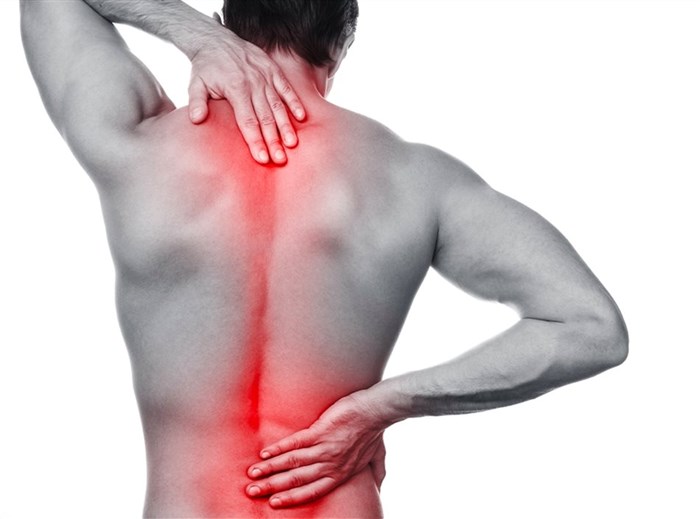The pandemic has had so many negative effects - one of which is people reporting an increase of lower back and neck pain. Working from home, without specialised office chairs and the resultant poor posture, together with a more sedentary lifestyle, appears to have contributed to musculoskeletal disorders.
Musculoskeletal pain is the pain that occurs in the muscles, bones, nerves, tendons and ligaments. It can be felt in the lower back, neck, joints and shoulders as a result of working in environments that are not ergonomically suitable for this task – such as couches, the dining room table or in bed. In fact, sitting in awkward positions for long periods often leads to lower back pain. And, even though it may feel as if you are more productive when working from home, the long-term effects can impact your efficiency.
A common problem
"Back and neck pain is a common problem," says Dr Morgan Mkhatshwa, head of operations at Bonitas Medical Fund. "Up to 80% of us will experience an episode at some point in our lives. It is associated with many factors that vary from person to person but can be caused by an injury, a disc or joint problem, an irritated nerve root or poor posture. The pain might be acute or chronic but living with either can be debilitating."
Sciatica
The sciatic nerve runs from the lower back through the hips and down each leg. Sciatica pain usually only affects one side of the body. One of the main causes is sitting for long periods, which irritates and compresses the nerve. How to avoid this:
- Take breaks and move more
- Avoid bad posture
- Stretch
- Make sure your computer screen is at the right height
- Avoid sitting or standing for too long
Sudden or severe back or neck pain or, pain that won’t go away should be checked by a doctor.
Pain is considered chronic if it lasts more than three months and exceeds the body’s natural healing process. Either way, failing to get pain relief after different treatments is very frustrating. It can lead to depression, loss of working hours, extensive treatments and often sufferers lose hope and resort to increased use of painkillers or going for surgery. Both of which can be counterproductive.
Download an app for help
Part of the DBC back and neck programme, offered by Bonitas, which helps manage chronic back and neck pain without surgery, is now available through an online app, called the DBC Health application. Treatment is available in the comfort of your own home, through the individualised exercises programme made available on your mobile device.
The DBC Health application caters to the needs of the low-risk patient. Medium and high-risk patients will be directed to make use of the full DBC programme at a centre of their choice.
The DBC programme offers an individualised treatment plan for up to six weeks and includes assistance from doctors, physiotherapists and biokineticists. In addition, you also receive a home-care plan to maintain your results long-term.
The programme is highly effective and low-risk, with an excellent success rate, plus the full cost of the programme is covered by the Scheme, meaning it won’t impact your savings or day-to-day benefits.
"Fortunately, our non-invasive back and neck programme has seen a 93% success rate which is why we introduced the DBC Health app this year. This technology-driven channel offers digital coaching solutions and home-based care, to help improve pain and mobility. It includes a self-assessment, baseline progress checks and outcomes evaluation."
The app mimics the DBC low-risk treatment pathway, which uses effective methods of musculoskeletal rehabilitation and physiotherapy for back and neck pain. The DBC programme has been successful in helping prevent surgery and restore functionality, increase flexibility and reduce pain.
"So far this year 2,162 assessments have been conducted at the DBC centres," says Dr Mkhatshwa. "We have seen a steep increase in the number of members utilising the DBC programme since 2019, with a 34% increase in the number of assessments conducted from 2020 to 2021.
"We believe in the preventative management of chronic back and neck pain and since partnering with DBC have received excellent feedback. Members are staying active, developing a better understanding about their pain, identifying the factors involved in their pain and living regular lives."
DBC currently has 24 equipped centres in South Africa with three additional centres planned to open during 2022/3.
If you are having back and neck pain, first see what daily lifestyle changes you can make before reading for pain killers. This includes improving your posture, re-assessing your working environment or perhaps even changing your diet. Being overweight can exacerbate back and neck problems so, if you have a high BMI, then it is advisable to look at how you can reduce this. However, if it’s severe or chronic (lingering for a long period of time) then seek professional help from your doctor.










































